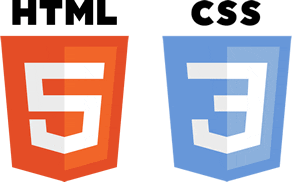
Google, that wily company, instituted a change back in March that you may be unfamiliar with. These days, Google is only indexing mobile websites. What that means is if you don’t have a mobile-friendly version of your website, you’re in trouble.
Google has a Googlebot that trawls the internet, finding out what pages exist and then adds them to its list of known pages. Once Google discovers a page, it crawls the page to find out what’s on it to determine where it should appear in the firm’s search results. Kind of like a spider testing its web to determine what its caught. This process is known as indexing. Google analyzes the webpage’s content, images, and video files. This information is stored in Google’s index, which is a ginormous database stored in about a jillion computers.
Because of Google’s change in March, desktop websites are kicked out of Google’s index permanently so it’s like your website no longer exists. And if it no longer exists, people will be unable to find you. Like I said, TROUBLE.
So what can you do about it? How can you make sure Google knows you’re alive, er, active? As a Charlotte web developer, we can help you with all that and more.
Make sure you’re mobile
First off, make sure your mobile pages have high-quality content and are conversion optimized. Second, test out your pages using Google’s PSI tool. If you really want to safeguard yourself, ask us to implement Accelerated Mobile Pages (AMP) for search engine optimization on your website.
Not being a mobile-friendly (or responsive) website is one reason why Google will remove you from its index. What are some other reasons?
Your layout shifts too much
We had a client recently who ran into trouble with Google indexing because he had a cumulative layout shift (CLS) problem. CLS measures the largest burst of layout shift scores for every unexpected layout shift during the lifespan of a page. What’s a layout shift? It’s what it sounds like – when a visible element on your webpage changes position from one frame to the next. For instance, if you click on a button, but then the button moves so instead you’re clicking on white space. Or if you’re reading text but the text vanishes and suddenly you lose your place. Those sorts of changes are considered unstable layout shifts.
An unstable layout shift means the element changes its starting position. If you later add a picture to a blogpost, that doesn’t count as an unstable layout shift because the text has a new starting position. However, there still is a layout shift because, well, the text is further down the page.
As you might have guessed, you want to minimize layout shifts as much as possible aiming for a CLS score of 0.1 or less. However, not all layout shifts are created equal! And not all layout shifts are bad. A layout shift is only bad if the webpage visitor isn’t expecting it, like in the case of clicking a button and then that button disappearing.
There are numerous things you can do to improve CLS, but one that doesn’t require a Charlotte web developer like us is always including size attributes on your images and video elements. Or reserving the required space with CSS aspect ratio boxes. Doing so means the internet browser can allocate the right amount of space while the image is loading and you won’t have a switcheroo situation happening. However, if you’d really like someone to do a deep dive on your website, get in touch with us.
Your pages load too slowly
In addition to the reasons we listed above, another common cause for not being in Google’s index is your pages load too slowly. If those slow pages aren’t fixed, Google will drop your page ranking over time and you’ll even fall out of its index entirely! Obviously you don’t want that. A quick way to check your page load speed is to use Google’s Page Speed Insights tool or the GTMetrix tool. But if your response is, “My pages load slowly. How do I fix that?” you need a Charlotte web designer. Let us help you.
There are more reasons why Google will drop you from its index, but these are the ones we wanted to highlight in particular. Honestly, in cases like these, your best bet is to reach out to a trained professional. Good thing you know one.
Read the Reasons You May Not be in Google’s Index on improving your site’s crawling and indexing. Give us a call at (704) 336-9113



